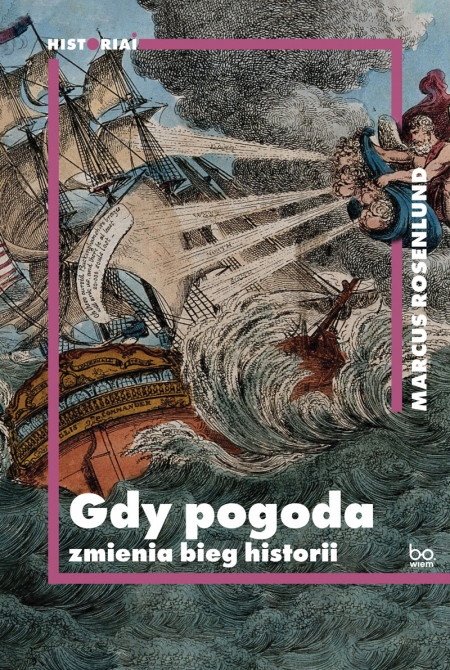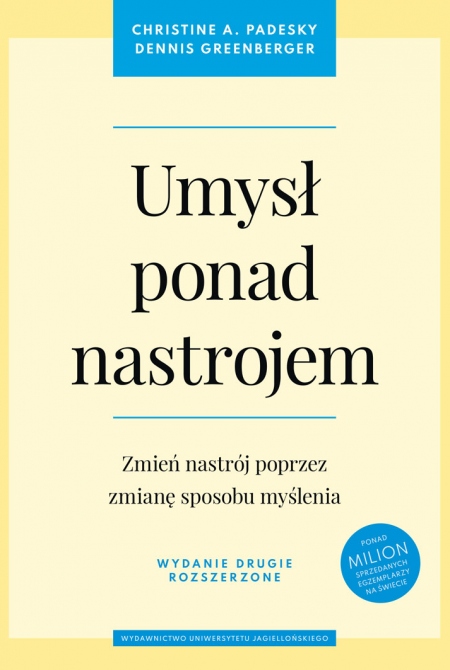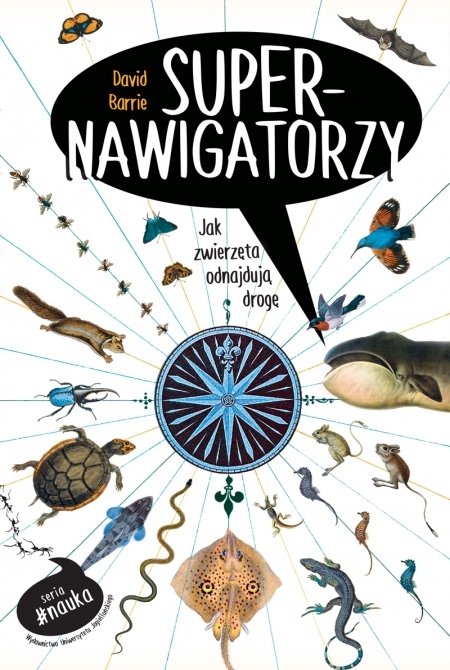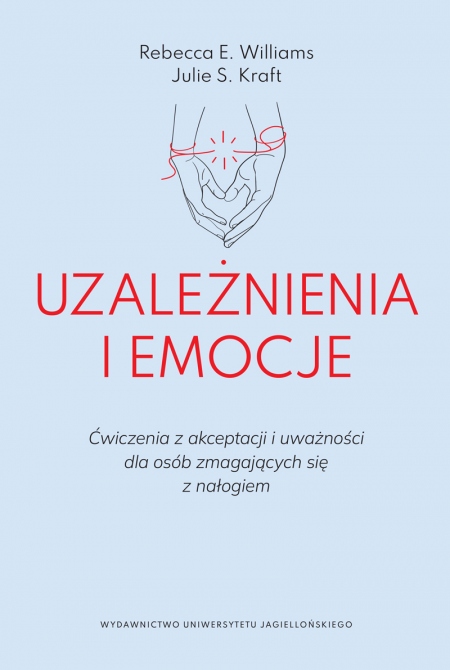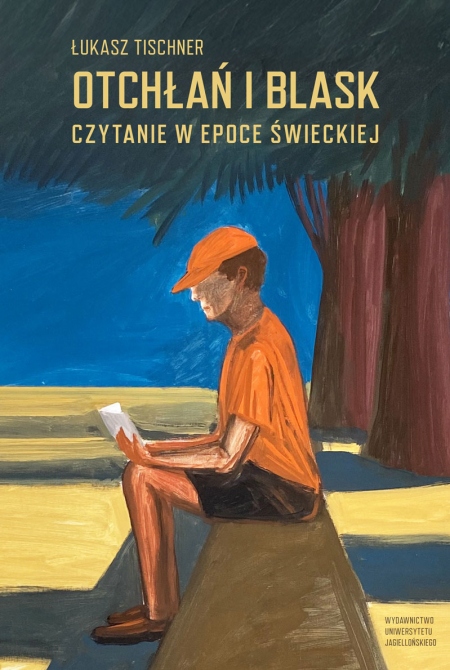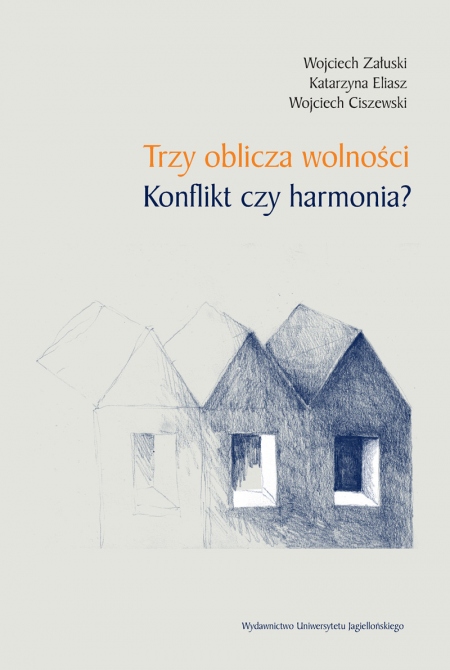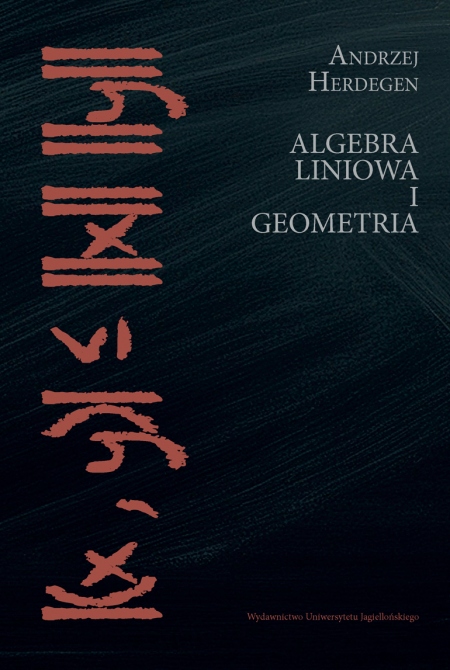Words and Dictionaries
A Festschrift for Professor Stanisław Stachowski on the Occasion of His 85th Birthday
Redakcja: Elżbieta Mańczak-Wohlfeld, Barbara Podolak
Liczba stron: 408
Format: B5
Rok wydania: 2016
Data premiery: 08.02.2016
Opis książki
Księga pamiątkowa dla Profesora Stanisława Stachowskiego z okazji jego 85 urodzin
* * *
A Festschrift for Professor Stanisław Stachowski on the Occasion of His 85th Birthday
* * *
A Festschrift for Professor Stanisław Stachowski on the Occasion of His 85th Birthday
Język publikacji
Angielski/English
Redakcja
Elżbieta Mańczak-Wohlfeld
, Barbara Podolak
ISBN: 978-83-233-4027-0
Kraj pochodzenia producenta: Polska
POLECANE KSIĄŻKI
65,00
zł
52,00
zł
NOWOŚCI
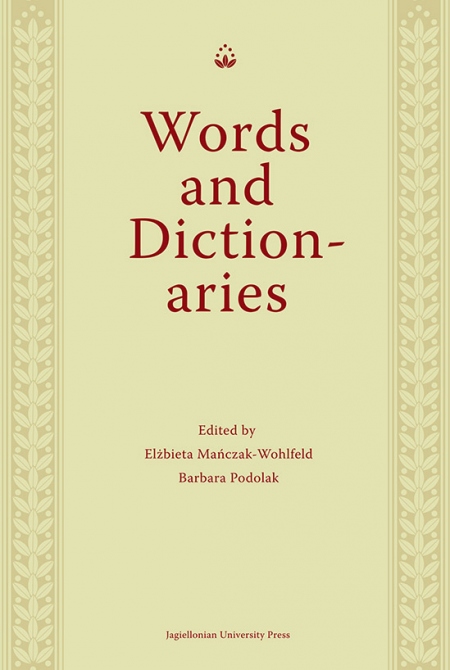
Words and Dictionaries
A Festschrift for Professor Stanisław Stachowski on the Occasion of His 85th Birthday
SPIS TREŚCI
Table of contents
José Andrés Alonso de la Fuente (Kraków), Tomasz Majtczak (Kraków) • A dialogue about the etymology of Yiddish páze 11
Alexander Andrason (Stellenbosch) • Slavic-Germanic hybridisation in the Vilamovicean language 29
Zbigniew Babik (Kraków) • A neglected Common Slavic word family for ‘Nymphaeaceae’ 41
Leszek Bednarczuk (Kraków) • Non-Indo-European features of the Tocharian dialects 55
Vít Boček (Brno) • Again on the so-called etymological formulae 69
Renata Bura (Kraków) • Noun formation in modern Upper Sorbian (selected issues) 81
John Considine (Edmonton) • The treatment of pagoda in etymological dictionaries 87
Filip De Decker (Gent) • The etymological connection between ἐνίπτω, ἐνίψω, ἴψαο, (προ)ΐαψε, ἐνένῑπε and ἠνίπαπε 97
Anna V. Dybo (Moscow) • Bulgarian borrowings in Hungarian: the problem of reflecting *q- 113
Romain Garnier (Paris) • Daps, epulum et sollemnis : une famille méconnue en latin 127
Henryk Jankowski (Poznań) • Distinguishing Kipchak and Turkish words in Polish documents 139
Bayarma Khabtagaeva (Szeged) • On the Yeniseian Arin word teminkur ‘ore’ 149
Michael Knüppel (Kassel) • Weitere Ergänzungen zu W. Leslaus Untersuchungen des arabischen Lehnguts im Amharischen 157
Corinna Leschber (Berlin) • Bulg. tarikàt ‘Gauner’ 167
Anatoly Liberman (Minneapolis) • The origin of English hire (noun and verb), being also a look at the state of the art and the etymology of Germanic *hūs ‘house’ 173
Ryszard Lipczuk (Szczecin), Katarzyna Sztandarska (Szczecin) • Türkismen in deutschen Wörterbüchern 181
Marek Majer (Cambridge, MA) • A lovely alternative: Proto-Slavic *ljubo 193
Jon Mills (Kent) • A short history of Cornish lexicography 205
Krzysztof Nerlicki (Szczecin) • Phraseologische Glossen – ein Differenzierungsversuch an Beispielen aus ausgewählten deutsch-polnischen Wörterbüchern 215
Kanehiro Nishimura (Kyoto) • On Latin strāgulum and strāgēs: -g- and analogy 231
Sorin Paliga (Bucharest) • Compiling dictionaries of defunct (?) languages: Thracian elements in Romanian 237
Mirosława Podhajecka (Opole) • Google Books as a source of historical data: the entry for macaroni in OED3 247
Luciano Rocchi (Trieste) • Quelques notes lexicales sur le Vocabulaire de la langue turque de Joseph von Preindl 265
Wolfgang Schweickard (Saarbrücken) • Lueli 275
Kenneth Shields (Lancaster, PA) • IE *bheu- ‘to be’: a typologically motivated etymology 281
Magnús Snædal (Reykjavík) • Gothic aibr ‘gift, offering’ 287
Kamil Stachowski (Kraków) • Phonetic adaptation of Arabic loanwords in Argenti’s Ottoman Turkish (1533). Part 1. Consonants and semivowels 297
Marek Stachowski (Kraków) • Vier türkische Etymologien (oder ufak uşakların„yuvarladıkları“ yufka) 319
Ewa Stala (Kraków) • Les noms des produits d’hygiène et de beauté dans le Waaren-Lexicon de Pf. A. Nemnich (1797) 329
Elżbieta Święcicka (Stockholm) • Preliminary notes on linguistic documents from the von Celsings’ 18th century Ottoman collection 341
Jerzy Tulisow (Warsaw) • Let’s talk like a Turk with a Manchu or a story of a certain text from Professor Stanisław Kałużyński’s collection 353
Robert Woodhouse (Brisbane) • Winter’s law in nasal-infix verbs in Baltic 367
Hüseyin Yildiz (Ankara) • Türkçe alçak Kelimesinin Etimolojisi Üzerine 379
Peter Zieme (Tokyo) • Altuigurisches Gold 397
José Andrés Alonso de la Fuente (Kraków), Tomasz Majtczak (Kraków) • A dialogue about the etymology of Yiddish páze 11
Alexander Andrason (Stellenbosch) • Slavic-Germanic hybridisation in the Vilamovicean language 29
Zbigniew Babik (Kraków) • A neglected Common Slavic word family for ‘Nymphaeaceae’ 41
Leszek Bednarczuk (Kraków) • Non-Indo-European features of the Tocharian dialects 55
Vít Boček (Brno) • Again on the so-called etymological formulae 69
Renata Bura (Kraków) • Noun formation in modern Upper Sorbian (selected issues) 81
John Considine (Edmonton) • The treatment of pagoda in etymological dictionaries 87
Filip De Decker (Gent) • The etymological connection between ἐνίπτω, ἐνίψω, ἴψαο, (προ)ΐαψε, ἐνένῑπε and ἠνίπαπε 97
Anna V. Dybo (Moscow) • Bulgarian borrowings in Hungarian: the problem of reflecting *q- 113
Romain Garnier (Paris) • Daps, epulum et sollemnis : une famille méconnue en latin 127
Henryk Jankowski (Poznań) • Distinguishing Kipchak and Turkish words in Polish documents 139
Bayarma Khabtagaeva (Szeged) • On the Yeniseian Arin word teminkur ‘ore’ 149
Michael Knüppel (Kassel) • Weitere Ergänzungen zu W. Leslaus Untersuchungen des arabischen Lehnguts im Amharischen 157
Corinna Leschber (Berlin) • Bulg. tarikàt ‘Gauner’ 167
Anatoly Liberman (Minneapolis) • The origin of English hire (noun and verb), being also a look at the state of the art and the etymology of Germanic *hūs ‘house’ 173
Ryszard Lipczuk (Szczecin), Katarzyna Sztandarska (Szczecin) • Türkismen in deutschen Wörterbüchern 181
Marek Majer (Cambridge, MA) • A lovely alternative: Proto-Slavic *ljubo 193
Jon Mills (Kent) • A short history of Cornish lexicography 205
Krzysztof Nerlicki (Szczecin) • Phraseologische Glossen – ein Differenzierungsversuch an Beispielen aus ausgewählten deutsch-polnischen Wörterbüchern 215
Kanehiro Nishimura (Kyoto) • On Latin strāgulum and strāgēs: -g- and analogy 231
Sorin Paliga (Bucharest) • Compiling dictionaries of defunct (?) languages: Thracian elements in Romanian 237
Mirosława Podhajecka (Opole) • Google Books as a source of historical data: the entry for macaroni in OED3 247
Luciano Rocchi (Trieste) • Quelques notes lexicales sur le Vocabulaire de la langue turque de Joseph von Preindl 265
Wolfgang Schweickard (Saarbrücken) • Lueli 275
Kenneth Shields (Lancaster, PA) • IE *bheu- ‘to be’: a typologically motivated etymology 281
Magnús Snædal (Reykjavík) • Gothic aibr ‘gift, offering’ 287
Kamil Stachowski (Kraków) • Phonetic adaptation of Arabic loanwords in Argenti’s Ottoman Turkish (1533). Part 1. Consonants and semivowels 297
Marek Stachowski (Kraków) • Vier türkische Etymologien (oder ufak uşakların„yuvarladıkları“ yufka) 319
Ewa Stala (Kraków) • Les noms des produits d’hygiène et de beauté dans le Waaren-Lexicon de Pf. A. Nemnich (1797) 329
Elżbieta Święcicka (Stockholm) • Preliminary notes on linguistic documents from the von Celsings’ 18th century Ottoman collection 341
Jerzy Tulisow (Warsaw) • Let’s talk like a Turk with a Manchu or a story of a certain text from Professor Stanisław Kałużyński’s collection 353
Robert Woodhouse (Brisbane) • Winter’s law in nasal-infix verbs in Baltic 367
Hüseyin Yildiz (Ankara) • Türkçe alçak Kelimesinin Etimolojisi Üzerine 379
Peter Zieme (Tokyo) • Altuigurisches Gold 397
Words and Dictionaries
A Festschrift for Professor Stanisław Stachowski on the Occasion of His 85th Birthday
SPIS TREŚCI
Table of contents
José Andrés Alonso de la Fuente (Kraków), Tomasz Majtczak (Kraków) • A dialogue about the etymology of Yiddish páze 11
Alexander Andrason (Stellenbosch) • Slavic-Germanic hybridisation in the Vilamovicean language 29
Zbigniew Babik (Kraków) • A neglected Common Slavic word family for ‘Nymphaeaceae’ 41
Leszek Bednarczuk (Kraków) • Non-Indo-European features of the Tocharian dialects 55
Vít Boček (Brno) • Again on the so-called etymological formulae 69
Renata Bura (Kraków) • Noun formation in modern Upper Sorbian (selected issues) 81
John Considine (Edmonton) • The treatment of pagoda in etymological dictionaries 87
Filip De Decker (Gent) • The etymological connection between ἐνίπτω, ἐνίψω, ἴψαο, (προ)ΐαψε, ἐνένῑπε and ἠνίπαπε 97
Anna V. Dybo (Moscow) • Bulgarian borrowings in Hungarian: the problem of reflecting *q- 113
Romain Garnier (Paris) • Daps, epulum et sollemnis : une famille méconnue en latin 127
Henryk Jankowski (Poznań) • Distinguishing Kipchak and Turkish words in Polish documents 139
Bayarma Khabtagaeva (Szeged) • On the Yeniseian Arin word teminkur ‘ore’ 149
Michael Knüppel (Kassel) • Weitere Ergänzungen zu W. Leslaus Untersuchungen des arabischen Lehnguts im Amharischen 157
Corinna Leschber (Berlin) • Bulg. tarikàt ‘Gauner’ 167
Anatoly Liberman (Minneapolis) • The origin of English hire (noun and verb), being also a look at the state of the art and the etymology of Germanic *hūs ‘house’ 173
Ryszard Lipczuk (Szczecin), Katarzyna Sztandarska (Szczecin) • Türkismen in deutschen Wörterbüchern 181
Marek Majer (Cambridge, MA) • A lovely alternative: Proto-Slavic *ljubo 193
Jon Mills (Kent) • A short history of Cornish lexicography 205
Krzysztof Nerlicki (Szczecin) • Phraseologische Glossen – ein Differenzierungsversuch an Beispielen aus ausgewählten deutsch-polnischen Wörterbüchern 215
Kanehiro Nishimura (Kyoto) • On Latin strāgulum and strāgēs: -g- and analogy 231
Sorin Paliga (Bucharest) • Compiling dictionaries of defunct (?) languages: Thracian elements in Romanian 237
Mirosława Podhajecka (Opole) • Google Books as a source of historical data: the entry for macaroni in OED3 247
Luciano Rocchi (Trieste) • Quelques notes lexicales sur le Vocabulaire de la langue turque de Joseph von Preindl 265
Wolfgang Schweickard (Saarbrücken) • Lueli 275
Kenneth Shields (Lancaster, PA) • IE *bheu- ‘to be’: a typologically motivated etymology 281
Magnús Snædal (Reykjavík) • Gothic aibr ‘gift, offering’ 287
Kamil Stachowski (Kraków) • Phonetic adaptation of Arabic loanwords in Argenti’s Ottoman Turkish (1533). Part 1. Consonants and semivowels 297
Marek Stachowski (Kraków) • Vier türkische Etymologien (oder ufak uşakların„yuvarladıkları“ yufka) 319
Ewa Stala (Kraków) • Les noms des produits d’hygiène et de beauté dans le Waaren-Lexicon de Pf. A. Nemnich (1797) 329
Elżbieta Święcicka (Stockholm) • Preliminary notes on linguistic documents from the von Celsings’ 18th century Ottoman collection 341
Jerzy Tulisow (Warsaw) • Let’s talk like a Turk with a Manchu or a story of a certain text from Professor Stanisław Kałużyński’s collection 353
Robert Woodhouse (Brisbane) • Winter’s law in nasal-infix verbs in Baltic 367
Hüseyin Yildiz (Ankara) • Türkçe alçak Kelimesinin Etimolojisi Üzerine 379
Peter Zieme (Tokyo) • Altuigurisches Gold 397
José Andrés Alonso de la Fuente (Kraków), Tomasz Majtczak (Kraków) • A dialogue about the etymology of Yiddish páze 11
Alexander Andrason (Stellenbosch) • Slavic-Germanic hybridisation in the Vilamovicean language 29
Zbigniew Babik (Kraków) • A neglected Common Slavic word family for ‘Nymphaeaceae’ 41
Leszek Bednarczuk (Kraków) • Non-Indo-European features of the Tocharian dialects 55
Vít Boček (Brno) • Again on the so-called etymological formulae 69
Renata Bura (Kraków) • Noun formation in modern Upper Sorbian (selected issues) 81
John Considine (Edmonton) • The treatment of pagoda in etymological dictionaries 87
Filip De Decker (Gent) • The etymological connection between ἐνίπτω, ἐνίψω, ἴψαο, (προ)ΐαψε, ἐνένῑπε and ἠνίπαπε 97
Anna V. Dybo (Moscow) • Bulgarian borrowings in Hungarian: the problem of reflecting *q- 113
Romain Garnier (Paris) • Daps, epulum et sollemnis : une famille méconnue en latin 127
Henryk Jankowski (Poznań) • Distinguishing Kipchak and Turkish words in Polish documents 139
Bayarma Khabtagaeva (Szeged) • On the Yeniseian Arin word teminkur ‘ore’ 149
Michael Knüppel (Kassel) • Weitere Ergänzungen zu W. Leslaus Untersuchungen des arabischen Lehnguts im Amharischen 157
Corinna Leschber (Berlin) • Bulg. tarikàt ‘Gauner’ 167
Anatoly Liberman (Minneapolis) • The origin of English hire (noun and verb), being also a look at the state of the art and the etymology of Germanic *hūs ‘house’ 173
Ryszard Lipczuk (Szczecin), Katarzyna Sztandarska (Szczecin) • Türkismen in deutschen Wörterbüchern 181
Marek Majer (Cambridge, MA) • A lovely alternative: Proto-Slavic *ljubo 193
Jon Mills (Kent) • A short history of Cornish lexicography 205
Krzysztof Nerlicki (Szczecin) • Phraseologische Glossen – ein Differenzierungsversuch an Beispielen aus ausgewählten deutsch-polnischen Wörterbüchern 215
Kanehiro Nishimura (Kyoto) • On Latin strāgulum and strāgēs: -g- and analogy 231
Sorin Paliga (Bucharest) • Compiling dictionaries of defunct (?) languages: Thracian elements in Romanian 237
Mirosława Podhajecka (Opole) • Google Books as a source of historical data: the entry for macaroni in OED3 247
Luciano Rocchi (Trieste) • Quelques notes lexicales sur le Vocabulaire de la langue turque de Joseph von Preindl 265
Wolfgang Schweickard (Saarbrücken) • Lueli 275
Kenneth Shields (Lancaster, PA) • IE *bheu- ‘to be’: a typologically motivated etymology 281
Magnús Snædal (Reykjavík) • Gothic aibr ‘gift, offering’ 287
Kamil Stachowski (Kraków) • Phonetic adaptation of Arabic loanwords in Argenti’s Ottoman Turkish (1533). Part 1. Consonants and semivowels 297
Marek Stachowski (Kraków) • Vier türkische Etymologien (oder ufak uşakların„yuvarladıkları“ yufka) 319
Ewa Stala (Kraków) • Les noms des produits d’hygiène et de beauté dans le Waaren-Lexicon de Pf. A. Nemnich (1797) 329
Elżbieta Święcicka (Stockholm) • Preliminary notes on linguistic documents from the von Celsings’ 18th century Ottoman collection 341
Jerzy Tulisow (Warsaw) • Let’s talk like a Turk with a Manchu or a story of a certain text from Professor Stanisław Kałużyński’s collection 353
Robert Woodhouse (Brisbane) • Winter’s law in nasal-infix verbs in Baltic 367
Hüseyin Yildiz (Ankara) • Türkçe alçak Kelimesinin Etimolojisi Üzerine 379
Peter Zieme (Tokyo) • Altuigurisches Gold 397
Wybierz rozdziały:
Wartość zamówienia:
0.00 zł
